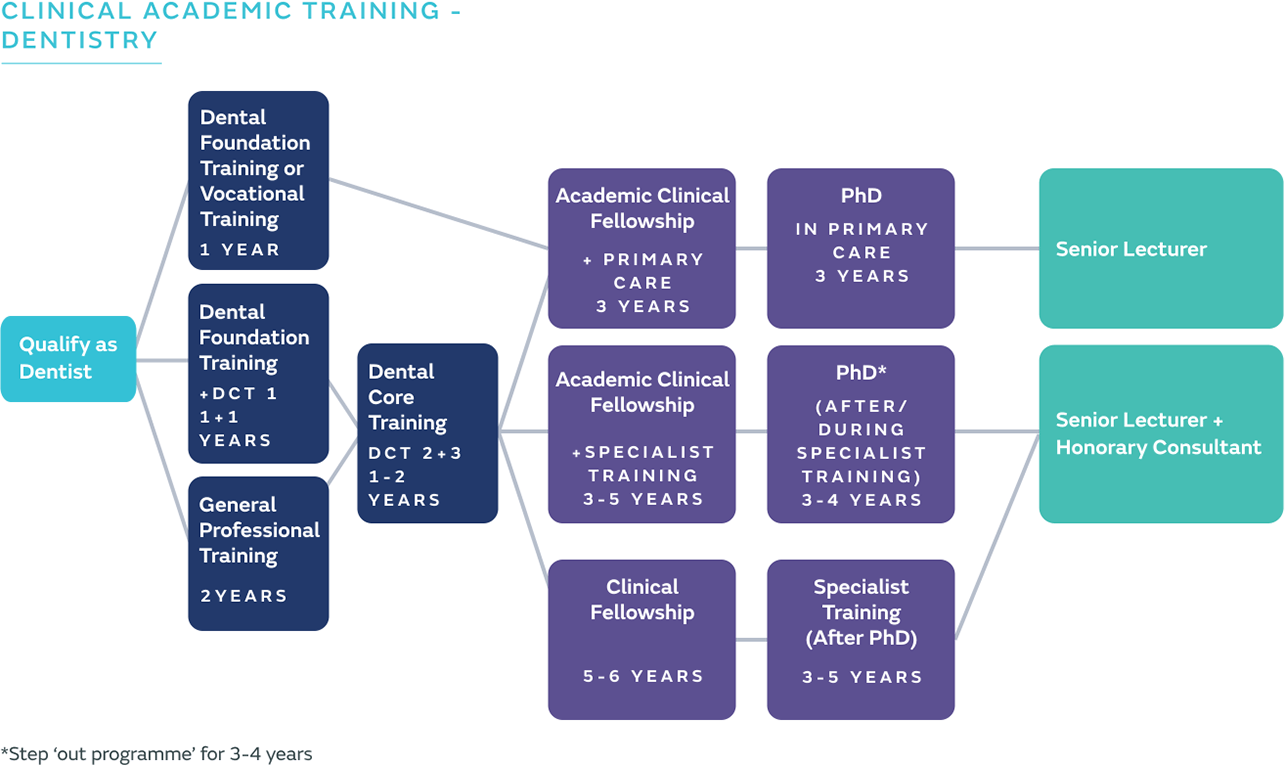The first step to becoming a dentist in the UK is to study for an undergraduate degree in dentistry on a course approved by the General Dental Council. The dental degree will typically take five years to complete, though some courses may take four or six years.
While the dental degree is focused on preparing students to become safe and competent dentists, there are early opportunities to explore clinical academia through intercalation, electives and research projects. Taking part in these activities during your undergraduate dental degree can be a good way to find out whether a clinical academic career would interest you, but it is not essential to make a firm decision about your future career at this stage.
Following qualification, to become a clinical academic the dentist must first complete Dental Foundation Training or Vocational Training, obtain the relevant dental postgraduate diploma (MFDS/MJDF) and undertake a PhD alongside or after clinical training. This diagram illustrates various pathways that could be taken to achieve this outcome, though it should be noted that while it illustrates some routes in, it is by no means exhaustive.


